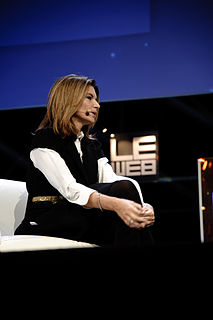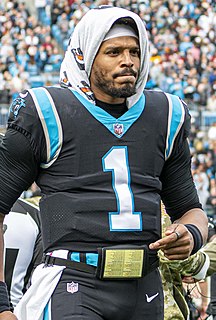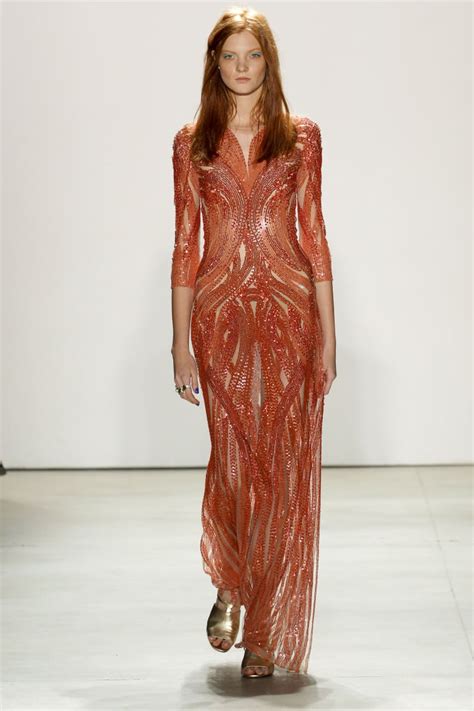A Quote by Natalie Massenet
Print is at the very, very top in the fashion business - of course it is.
Related Quotes
If we're having a glitzy over-the-top moment, fashion is very glitzy and over-the-top, you know, over-the-top. If we're having a moment where things are, you know, we're in a recession, fashion becomes quiet. So, in terms of popular culture, fashion and especially women's fashion is incredibly interesting, aside from satisfying just a particular need to create and arrange things in a way that one sees as beautiful. And so, in a certain way, it's fulfilling. In another way, it's very fleeting because it doesn't last very long. You know, a beautiful moment in fashion goes away very quickly.
Print works! It works as a business proposition - our print readers [of the Mother Jones] not only provide revenue in the form of subs and ads, but they are a core part of our donor community; 10 percent give us a donation on top of their subscription; that's about the same rate as NPR gets from its listeners.
Print is still responsible for a significant portion of the revenues that, you know, pay for the work of the newsroom. But, you know, digital is very important. And part of the thrill of having this job now is I get to lead us through what is both a thrilling and very challenging transition from a print world to a digital world.


































